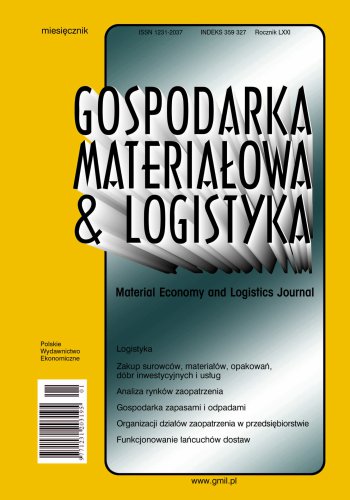The optimization of warehouse processes is one of the most important requirements of modern logistics. At a time when the automation of warehouses and distribution centers is rapidly increasing, there is a real need among logistics managers for software to improve the efficiency of intralogistics processes. The topic presented is important both from a business and a scientific point of view. For business, it remains an important way of increasing efficiency, and from the scientific point of view, it is an interesting area of research.
The aim of this publication is to present the results of research connected with Warehouse Intelligence (WI) project. In this project software for the optimization of intralogistics processes is developed. The software is currently in the research and development phase and it is therefore theoretical and conceptual study. Selected elements related to the ongoing research and development process are also presented, as far as possible for today (July 2022) taking into account the current status of the project. The aim of the entire WI project is to develop a globally innovative product for analyzing intralogistics processes with the support of AI algorithms. The subject of the research are processes which take place in the warehouse. We use research methods such as: computer simulation, experiments or analytical methods. This publication also uses the method of critical analysis of the literature.
Keywords: IT systems in logistics; warehouse management; optimization of warehouse processes; machine learning

